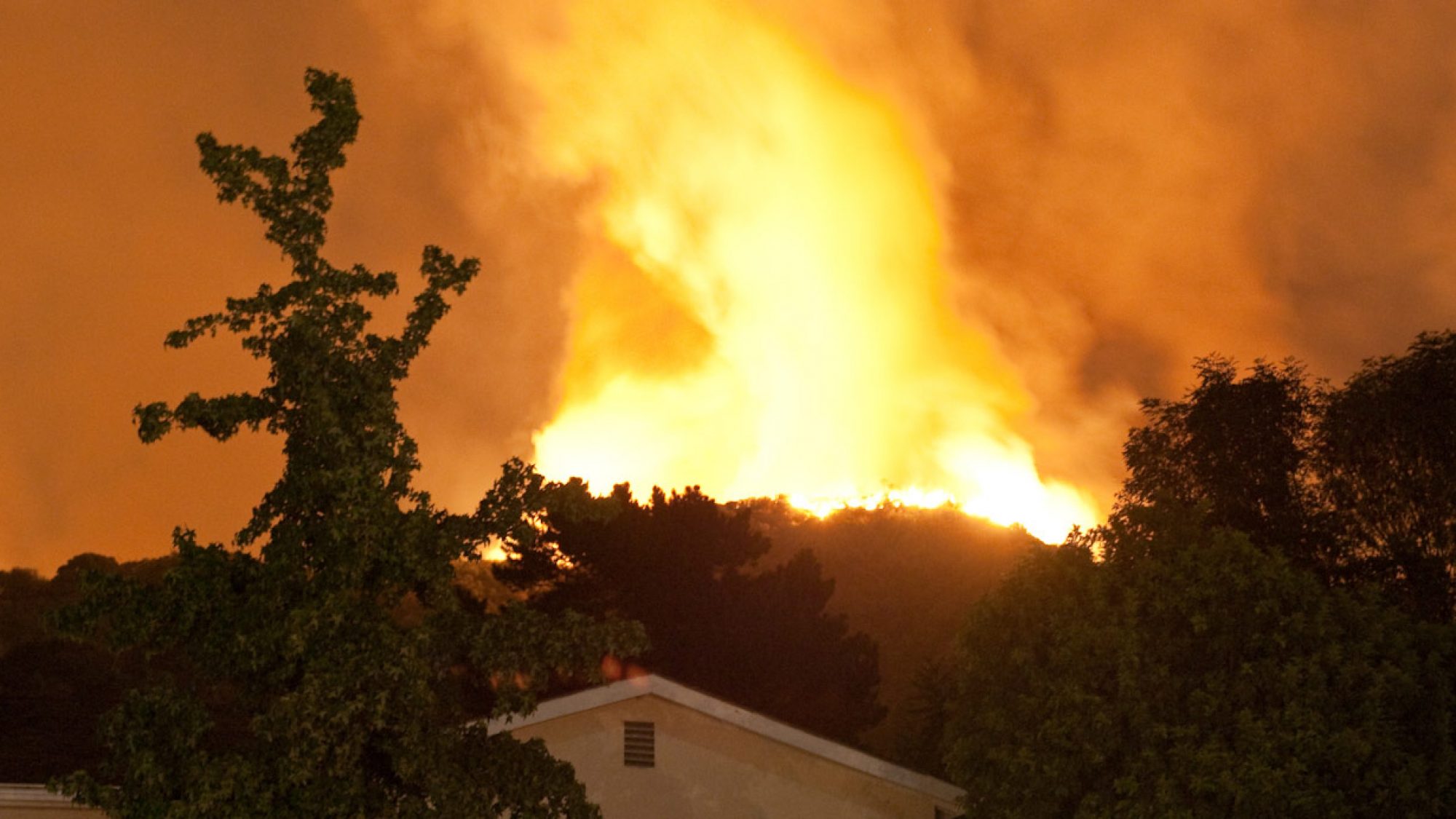
Title: Marooned Democracy: Climate Change Demands Management, Not Solutionism
If climate change is seen as a condition to manage rather than as a problem to solve, then democracy is well suited to address it. Even then, democracy is no universal panacea. A further challenge is that the United States is at best an aspirational democracy, and the countries of the world do not share a common vision of global governance.
Imagine a ship on the ocean with no destination. The goal of the sailors is to individually thrive and for the ship to be safe. They have only recently joined in this cooperative endeavor, forced by circumstance. The sailors have different histories, skills, capacities, attitudes towards risk, and conceptions of what it means to thrive. At first, they struggled to come together, but a period of optimism and bonhomie followed. This moment was fleeting, however, as the seas became increasingly rough and unpredictable. The sailors have a general sense of where they might find calmer waters with more abundant resources, but they disagree about exactly how to get there. There is also dissent about who is responsible for which tasks, creating resentment against the officers in control of the ship. Not only have the officers failed to make the ship safe, but they have also abused their positions of power. Suddenly the captain abandons his post, saying that he has been taken advantage of by the others. There is no obvious successor to the captain, but even the one or two sailors who have the greatest skill and competence are viewed with suspicion by many of the other sailors. Perhaps these ambitious sailors will be even more brutal than the captain in their use of their newfound power. Perhaps they are not as competent as they seem. While the sailors squabble, the seas rise.
Analogies are not perfect, and we would think even more dimly of the sailors if they had created the raging seas that forced them on to the boat in the way that we have caused climate change. And unlike the sailors, we face two distinct governance challenges: one among nations, and one within nations. What I argue in this essay is that invoking democracy is not a panacea for addressing either challenge.
Climate change is not a problem to be solved any more than the ship has a destination. The sailors are not going to make the oceans go away, just as we will not put a stop to climate change. In both cases, the challenge is to manage ourselves and the conditions in which we find ourselves in order to stay safe and thrive. Management approaches seek a modus vivendi with the conditions of life, while problem-solving approaches seek permanent solutions to what ails us.
There are many conditions we must manage, including the ubiquitous presence of viruses. We derive benefits from some viruses, bear costs from others, and consciously or not, mostly find a way to co-exist with them. We have only succeeded in eradicating two viral diseases: smallpox and rinderpest. There are 218 other virus species known to infect humans. Eliminating all of them, or trying to return to a “pre-Anthropocene” viral environment would be a fool’s errand.
When climate change is seen as a problem, democracy is often viewed as the solution. Yet democracies have not successfully addressed climate change; Plato’s objections to democracy help to explain why: democracies can have ignorant voters, incompetent leaders, and unstable laws and policies due to abrupt and irrational shifts in public opinion. Furthermore, a “solution” to climate change requires global cooperation, yet democracies are responsible only to their own voters, which weakens multilateral efforts and can make governments glaringly indifferent to concerns beyond their own borders. Tackling climate change requires long-term commitments, yet the time horizon of democratic leaders is keyed to the electoral cycle. Democracies typically have large numbers of “veto players” that prevent the enactment of critical policies, from the Yellow Jacket protesters in France to the majority leader of the United States Senate. Finally, there is a profound tension between democracy and expertise. Any democratic citizen can retort to the expert: “You may be right, and you may be an expert, but who granted you authority over what I should do and believe?” If climate change were a problem, then Plato’s philosopher-king would be a far better candidate for identifying and enacting the solution than the elected leader of a democratic polity.
But when we view climate change as a condition to be managed rather than a problem to be solved, the strengths of democracy come into view. For leaders to successfully manage an ongoing challenge, they must enjoy the confidence of their citizens and their policies must broadly conform to majority preferences. When citizens feel that they are the authors of a collective decision, they are more likely to accept it, even when that decision constrains their behavior. A philosopher-king may correctly decide that millions of people should relocate in a “managed retreat” from America’s disappearing beachfront communities, but any attempt to impose this policy without democratic authorization would lead to outrage and mass protest (consider, e.g., the reaction to mask mandates in the United States).
The general strategies for managing climate change are the same as those for managing other deleterious conditions: democratic leaders should make change predictable, seek co-benefits, align with existing values, and promote just outcomes. Scheduled steady policy changes, such as those embodied in Germany’s commitment to phase out coal by 2038, stabilize expectations and create positive environments for investment. Building green infrastructure, and regulating pollutants such as nitrogen fertilizer and ozone-depleting chemicals provide ample opportunities for producing climate co-benefits. Protecting people from climate-change related disasters such as floods and wildfires by withdrawing insurance subsidies and other incentives to build in hazardous places aligns with values of personal responsibility. By contrast, using eminent domain to achieve the same goals often elicits cries of government overreach. And one thing we know from environmental events ranging from the “Little Ice Age” to the present climate crisis and global pandemic is that the poor and the powerless suffer more from extreme events than the rich and powerful. Justice must always remain in view, both for its own sake and because injustice undermines the stability of the political order.
Once we appreciate the power of a vibrant, responsive democracy for managing climate change, another problem comes into view: the undemocratic characteristics of “American democracy.” Political theorists disagree about the exact nature of democracy: is it, for example, the “way of life” of a well-educated, highly informed and committed citizenry, as envisioned by John Dewey; or the expert-led administrative state, whose authority is ratified by regular elections, as advocated by Walter Lippman? However we decide such questions, it is clear that democracy in the United States is at best aspirational. As I write these words a sitting president with the support of powerful elements of his own party and a large fraction of the American people is trying to reverse the results of a legally certified election that would remove him from power. The challenge of bringing democracy to America is as profound as the challenge of climate change.
And what of the global community? If democracy is our best hope for managing climate change domestically, then perhaps it is also our best hope for managing climate change globally. Like the sailors on the ship, we may neither need nor want an authoritative captain—but what then? Will the nations of the world, acting as free and equal parties, make wise decisions and coordinate their behavior in a way that protects the world? Or will they sink into the self-interest and cynicism that have defeated so many other attempts at global collective action? Plato’s critique of democracy lingers, not only over the United States, but also the entire world.
. . .
Dale Jamieson is Professor of Environmental Studies and Philosophy; Affiliated Professor of Law; Affiliated Professor of Medical Ethics, School of Medicine; Associated Faculty, Center for Bioethics, College of Global Public Health; and Director of the Center for Environmental and Animal Protection at New York University. His recent books include Discerning Experts: The Practices of Scientific Assessment for Environmental Policy (Chicago, 2019),co-authored with Michael Oppenheimer, Naomi Oreskes and others, and Reason in a Dark Time: Why the Struggle to Stop Climate Change Failed–and What It Means For Our Future (Oxford, 2014).
Image credit: Richard Hurd, Flickr
Recommended Articles

This paper examines the interrelated crises facing the Maghreb region: water scarcity and gender inequality. It describes the current approach towards addressing water scarcity and how incorporating women’s voices into…

This article compares U.S. and Chinese approaches to artificial intelligence (AI) exports in Africa and examines how these disparate approaches have produced both downstream benefits and challenges for the region.

On May 20, 2025, the World Health Assembly unanimously adopted the World Health Organization (WHO) Pandemic Agreement, an international treaty designed to strengthen pandemic prevention, preparedness, and…